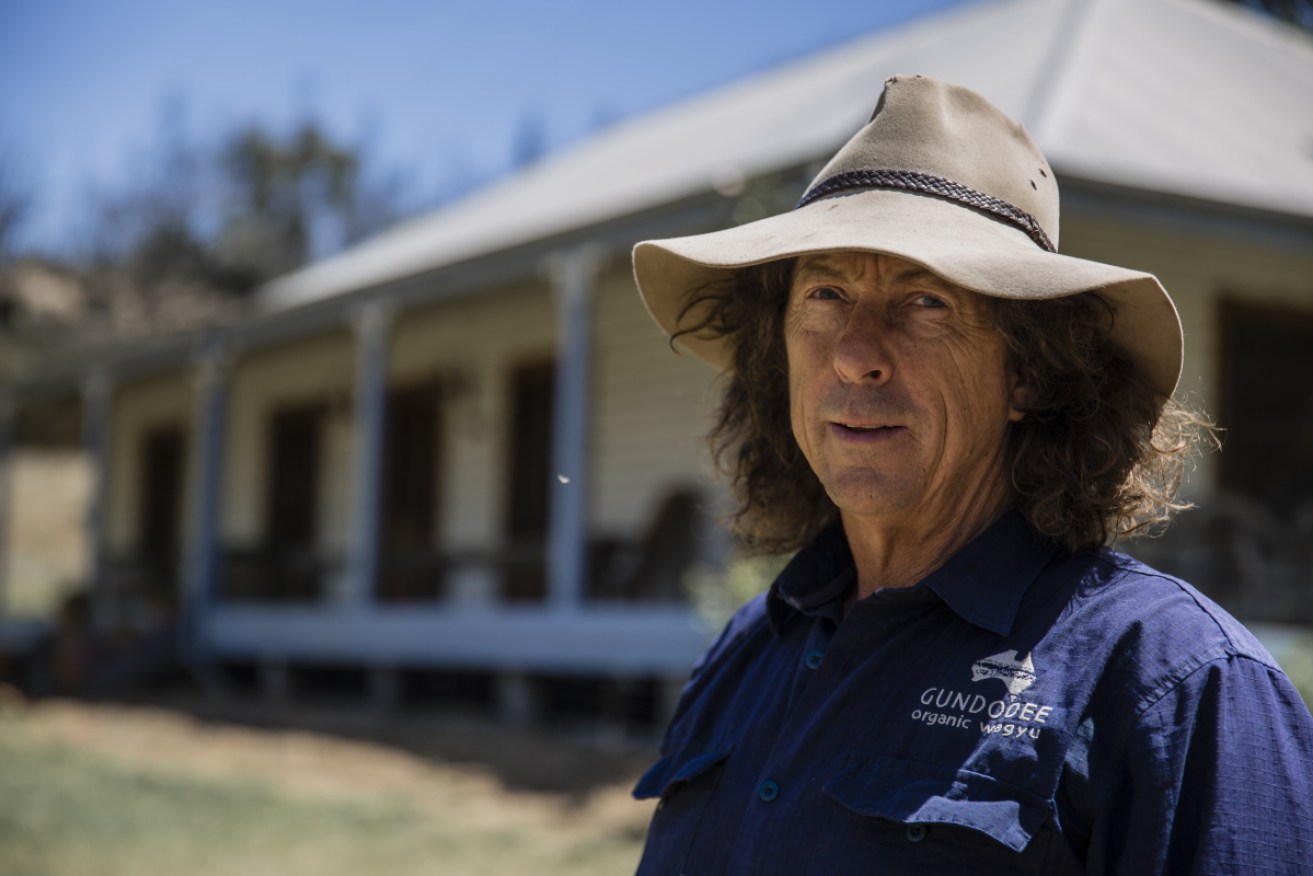Aussie farmers hit hard by dry spell are drowning in debt


Rob Lennon is one of many farmers who have become heavily reliant on loans due to the prolonged drought. Photo: The Situation Room
Struggling farmers are amassing million-dollar debts in their effort to stay afloat during the drought, with loans eating up a big chunk of their income.
To keep his animals alive and continue breeding herds, fourth-generation farmer Bernard Taylor has racked up about $1.6 million in debt.
Mr Taylor said he hasn’t been able to repay the bank a single dollar since requesting his first drought-related loan some seven years ago.

Mr Taylor lives with his elderly mother Aileen on their property that has no water.
“I’ve been trying to get that down but with this dry weather, you just can’t get it down. It just gets worse,” he told The New Daily.
Residing near Toowoomba in Queensland, the 54-year-old said he has only been able to muster up enough money to pay off the interest on his bank loans.
And he’s only recently started repaying a $200,000 loan from the Queensland Rural and Industry Development Authority.
Just before his dad died two years ago, Mr Taylor promised he would do his best to keep the family farm going – as well as care for his 83-year-old mum, Aileen.
But he can’t help but feel like a failure.
Mr Taylor has had to let go seven workers because he could no longer afford to keep them and is now down to just two staff.
“Some days you wake up and think what the hell are you doing this for – and you feel you’re letting everyone down,” he said.
“It’s hard to know do you keep going or just end it?”
Farmers can receive a fortnightly income support payment of up to $600 over four years as part of the Farm Household Allowance.
About two months ago, Mr Taylor reached the end of four years on the allowance and was cut off.

Bank loans have kept Mr Taylor’s family farm going. Photo: Bernard Taylor
He recently received a lump sum payment of $7500 from the Department of Human Services after Parliament passed a bill in November allowing singles like himself who have reached the four-year expiry to receive that one-off bank deposit and couples to receive $13,000.
While “it’ll help keep food on the table” and his four children in school, Mr Taylor is largely reliant on bank loans to “survive” and is worried they might “shut the door on us” because of his climbing debt levels.
His children know not to expect any special presents this Christmas. But, Mr Taylor won’t be the only one doing it tough.
Struggling farming families all around Australia are turning to help from a series of community drought appeals.
Mr Taylor said they’re thankful for the generosity of strangers.
NSW farmer Rob Lennon, 58, knows he’ll be cut off the farmer’s allowance at the end of this financial year.
While he is expected to automatically receive $7500, he can’t help but worry about his large debt.
Mr Lennon owes more than $400,000 in Rural Assistance Authority loans and still has to return the $400,000 he borrowed from the bank to start the farm business in Dunedoo 21 years ago.
“I can’t borrow any more money because I’m already at my limit.”
As for staff, Mr Lennon said he – like Mr Taylor – just can’t afford them.
He said the drought has cost him about $200 a day.
Imagine cupping your hands, Mr Lennon said.
“That’s the amount of feed I give them per head per day on average. I put this down to keeping good ground cover and making the most out of what little rain does fall.”

Mr Lennon will soon reach the end of his farmer’s allowance from the government. Photo: The Situation Room
Lyn Anderson and her husband Alastair are paying off a $200,000 loan borrowed at the end of the Millennium Drought in 2009 to fund a water-producing bore.
“We were giving ourselves ulcers worrying about water,” Ms Anderson said.
“We do have an overdraft on our check account that we use sometimes, but the overdraft only goes up to $50,000. And I try not to use it if I can help it.”
She said the drought has reduced their income “considerably”.
“We’d normally try to have 1000 cow breeders and we’re down to 300 now.”
The couple has been farming for almost six decades and “don’t know how much longer we can get through it”, with barely any rain and no grass growing, Ms Anderson said.
“We’ve been in drought here since 2013. 2013 we sold everything that was saleable in the place.”
But they consider themselves fortunate and have not applied to receive the Farm Household Allowance because as Ms Anderson explains, “there are people that need it more than we do”.








